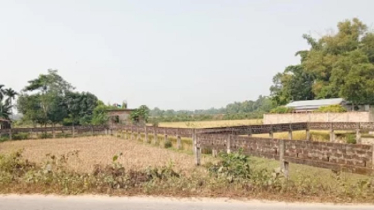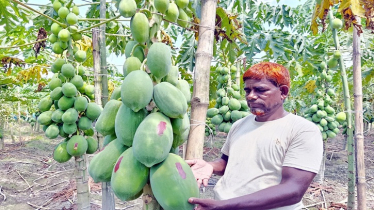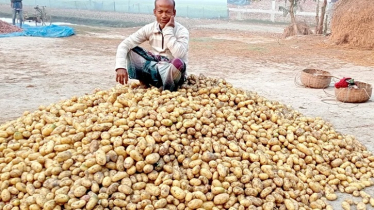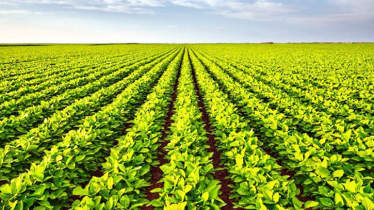
Farmers in Khulna are increasingly turning to green manure as a sustainable alternative to chemical fertilizers, bringing new optimism to environmentally friendly and cost-effective farming in coastal areas.
Guided by the Department of Agricultural Extension (DAE), local farmers have successfully revived the traditional practice of using green manure instead of chemical inputs for rice cultivation. This method not only improves soil health but also reduces production costs and dependency on synthetic fertilizers.
In Shurikhali village of Batiaghata upazila, farmer Md. Shahjahan Hossain cultivated transplanted Aman rice this year on 70 percent of his land without using any chemical fertilizers, relying instead on green manure made from dhaincha plants.
“After harvesting Boro rice, I sow dhaincha seeds, and within about 45 days, the plants grow tall enough to be ploughed back into the soil,” Shahjahan told BSS. “My crops grow well without chemicals, saving me nearly Tk 6,000 to 7,000 in costs,” he added.
Nearby farmers Abdul Hamid and Harunur Rashid from Gangarampur and Chakrakhali villages have adopted the same approach and reported promising results.
According to agricultural experts, green manure enriches the soil with organic matter and nitrogen. Research by the Agricultural Research Foundation indicates that one hectare of dhaincha can contribute 60 to 80 kilograms of nitrogen to the soil, making it an excellent alternative to urea fertilizer.
Farmer Abdul Hamid said, “For the first time, I cultivated rice without using urea, and the yield is still good. Next year, I plan to grow dhaincha across 12 bighas before planting rice.”
Assistant Agriculture Officer Jibananda Roy noted that prolonged use of chemicals and salinity have degraded soil fertility in coastal regions. “We are encouraging dhaincha cultivation. In Shurikhali alone, about 110 bighas of land have already been brought under green manure-based farming,” he said.
According to a report from the DAE’s Khulna Zone, over 3,000 farmers across Khulna, Bagerhat, Satkhira, and Narail sowed dhaincha on 474 hectares of land in 2025.
Upazila Agriculture Officer Abu Bakar Siddique said, “Following the watermelon season, we distributed five kilograms of dhaincha seeds each to 210 farmers under an incentive program. After 45 days, the plants are ploughed into the soil, which reduces production costs and improves yields.”
Experts estimate that Bangladesh uses 5 to 5.5 million tonnes of chemical fertilizers annually, including 2.6 to 2.7 million tonnes of urea, costing the government Tk 10,000 to 12,000 crore in subsidies. The widespread adoption of green manure could significantly reduce these expenses while benefiting the environment.





